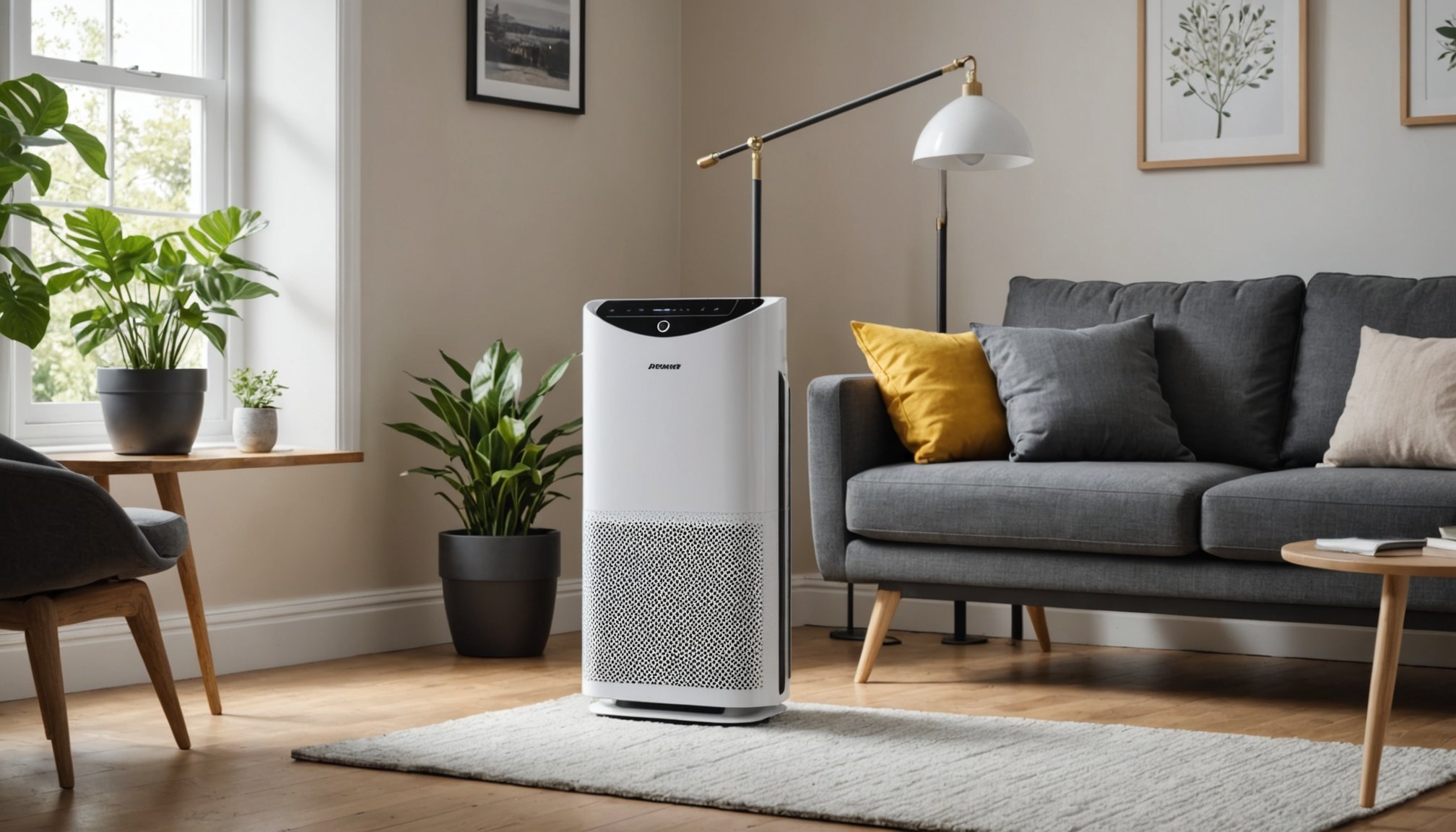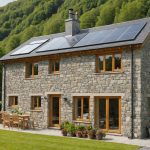Air quality is a critical consideration for any homeowner, especially for those suffering from allergies or respiratory conditions. Air purifiers can significantly enhance the quality of air in your home, eliminating harmful particles, including pollen. But the question remains, which air purifier is the best for you? This article will delve into some of the most effective models available in the market, focusing specifically on their efficiency in reducing pollen levels.
The Importance of Choosing the Right Air Purifier
An air purifier might seem like a straightforward purchase, but like most home appliances, it requires careful consideration. There’s an array of purifiers on the market, each with unique features, pros, and cons. Your choice depends primarily on your specific needs and the specific characteristics of your home.
Lire également : Ultimate Guide to the Sturdiest Flooring Choices for High-Traffic Areas in British Homes
The size of your room, the level of pollutants, and the type of pollutant you’re dealing with are among the factors that will influence your choice. For example, if you are specifically struggling with pollen, a purifier with a High Efficiency Particulate Air (HEPA) filter might be your best bet. HEPA filters are renowned for their ability to capture 99.97% of particles as small as 0.3 microns, including pollen.
Exploring the Best Air Purifiers for Pollen Reduction
Now that we understand the critical role of air purifiers, let’s explore some of the best models for reducing pollen in your home. These models have been selected based on their efficiency, credible reviews, and their ability to deliver on their promises.
Cela peut vous intéresser : Discover the Cutting-Edge Home Security Innovations Transforming Safety for UK Homeowners
Blueair Classic 405
The Blueair Classic 405 is a top contender in the world of air purifiers. It uses a unique HEPASilent technology, which combines electrostatic and mechanical filtration to capture 99.97% of airborne particles, including pollen.
The purifier also allows for smart control. You can connect it to the Blueair app, which lets you control the purifier remotely, set schedules, and monitor air quality in real time. This ability to control the air purifier through an app adds a layer of convenience that makes it a worthwhile investment.
Dyson Pure Cool Link
The Dyson Pure Cool Link is another excellent choice, especially for those who appreciate a sleek, modern design. This device doubles as a fan and an air purifier, offering both air purification and cooling in one package.
The purifier features a 360-degree glass HEPA filter, which removes 99.97% of pollutants as small as 0.3 microns. It also comes with an intelligent purification system that automatically monitors, reacts, and purifies the air, then sends reports to your Dyson Link App.
Factors to Consider When Buying an Air Purifier
Knowing which models are most effective is one thing, but understanding what makes a good air purifier is another. Here are some key factors to consider when buying a device to enhance your home’s air quality.
Filter Type
The type of filter in an air purifier will determine which pollutants it can effectively eliminate. As mentioned earlier, HEPA filters are the gold standard when it comes to capturing tiny particles, including pollen. Therefore, always look for purifiers with this type of filter.
Room Size
The size of the room where you will place your air purifier will dictate the model you buy. Most purifiers indicate the maximum area they can efficiently cover. Ensure the model you select is suited for your space to guarantee optimal performance.
Noise Level
Most purifiers use fans to circulate air through their filters. Consequently, they generate noise, which can vary significantly from one model to another. If you intend to use your purifier in a quiet space, like a bedroom, consider the noise level before making a purchase.
Maintenance: Taking Care of Your Air Purifier
Finally, it’s important to know that air purifiers require maintenance to perform optimally. This often involves regularly replacing the filters, which can be a recurring cost you need to consider.
For instance, the Blueair Classic 405’s filter requires replacement every six months, while the Dyson Pure Cool Link’s filter lasts for a year. Always factor in the longevity and cost of replacement filters when choosing your air purifier.
By understanding your needs, doing your research, and considering the factors discussed in this article, you can confidently choose an air purifier that will efficiently reduce pollen and enhance the air quality in your UK home.
Additional Features to Look for in an Air Purifier
Beyond the HEPA filter, room size, and noise level, there are other features that can enhance the effectiveness of an air purifier. The presence of an activated carbon filter, for instance, can make a significant difference in the air quality within your UK home.
Activated carbon filters are particularly effective at removing gaseous pollutants, volatile organic compounds (VOCs), and odours. They work by adsorbing these pollutants onto their surface, thus cleaning the air that circulates through them. Some air purifiers, like the Dyson Purifier Cool Formaldehyde, even incorporate activated carbon filters that have been specifically designed to capture formaldehyde, a common indoor air pollutant.
Another useful feature to consider is whether the air purifier has a true HEPA filter. True HEPA filters meet specific standards set by the US Department of Energy, ensuring they capture at least 99.97% of particles that are 0.3 microns in size. These filters provide an extra layer of assurance when it comes to maintaining clean air in your home.
Lastly, consider the air purifier’s smart capabilities. Some models, like the Levoit Core 300, offer smart features that allow you to control the device remotely, review specifications, and monitor changes in your indoor air quality. This added convenience can make maintaining your air purifier a much more straightforward process.
Conclusion: Choosing the Right Air Purifier for Your Needs
The importance of maintaining good indoor air quality cannot be overstated. For those suffering from allergies or respiratory conditions, an air purifier can be a real game-changer. But choosing the best air purifier is not a one-size-fits-all decision. You need to consider various factors, including the type of pollutants you want to eliminate, the size of your room, the noise level you are comfortable with, and the maintenance requirements of the device.
Given their proven effectiveness in capturing pollen and other small particles, air purifiers with HEPA filters, like the Blueair Classic 405 and the Dyson Pure Cool Link, come highly recommended. However, if you are also concerned about gaseous pollutants and odours, consider models with an activated carbon filter, like the Dyson Purifier Cool Formaldehyde.
Ultimately, the best air purifier for you will depend on your specific needs and circumstances. By taking the time to do your research and considering the factors discussed in this article, you can choose a device that will help you maintain a comfortable, healthy living environment. Keep in mind that maintaining your air purifier, including regular filter replacement, is crucial to ensuring its long-term effectiveness. And don’t forget to check out expert review websites and platforms to read the best advice and feedback from others who have walked the same path. Remember, your goal is clean air and a healthier home!











